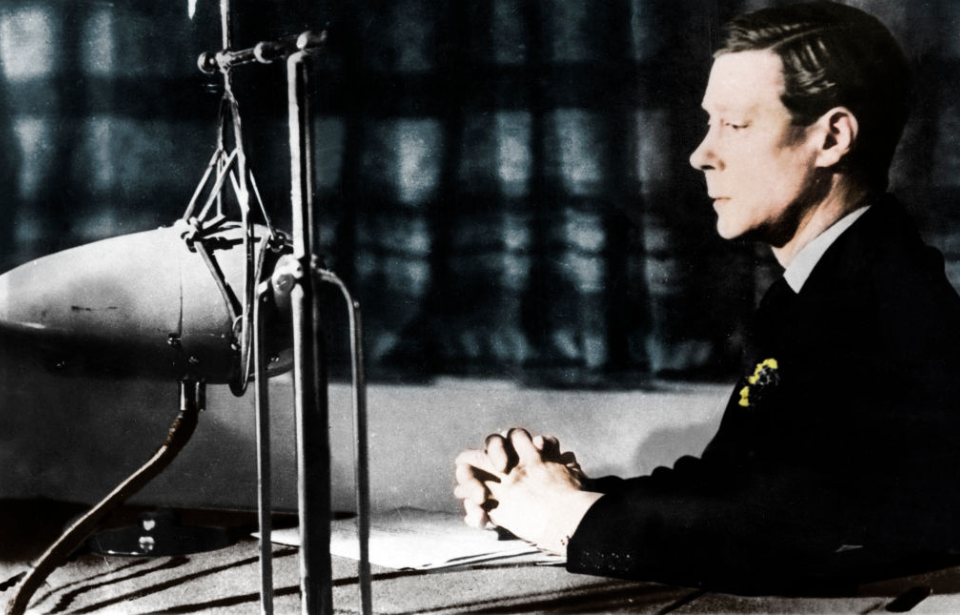When thinking of controversial figures in the British Royal Family, odds are Edward VIII, the Duke of Windsor, comes to mind. A former king who abdicated the throne to marry a divorced American socialite, he remained in the spotlight throughout the Second World War, thanks to his dealings with the Führer and other high-ranking German officials. Many used this to seemingly confirm his sympathies with the regime, but was he really willing to put Germany over his homeland?
How did Edward VIII serve in the Great War?
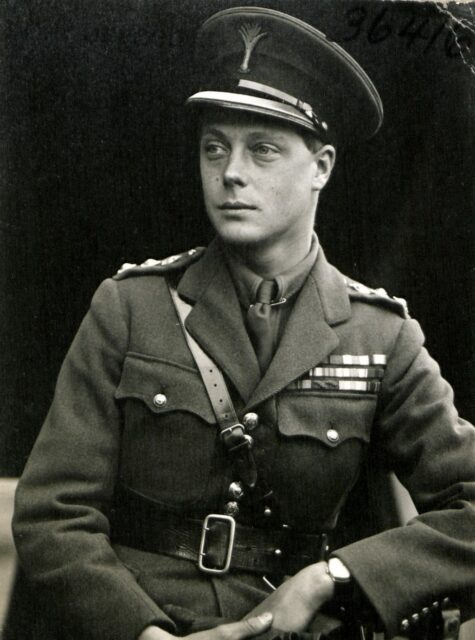
Prior to the events of the Second World War, Edward VIII publicly showed his dedication to Britain by volunteering to serve in the Great War. He was keen to serve on the frontlines of mainland Europe and had enlisted in the Grenadier Guards to make it certain he would, but his status as heir apparent meant he was restricted from such dangerous duties.
Instead of being deployed across the English Channel to fight, Edward wound up overseas in a more observational capacity. He visited troops and toured the trenches of the Western Front, for which he was later awarded the Military Cross.
What Edward saw and experienced during World War I greatly impacted his views of international cooperation and warfare. This exposure had a lasting effect on him, with it most noticeably emerging in his later opinions on appeasement and diplomacy.
Visiting Germany in 1937
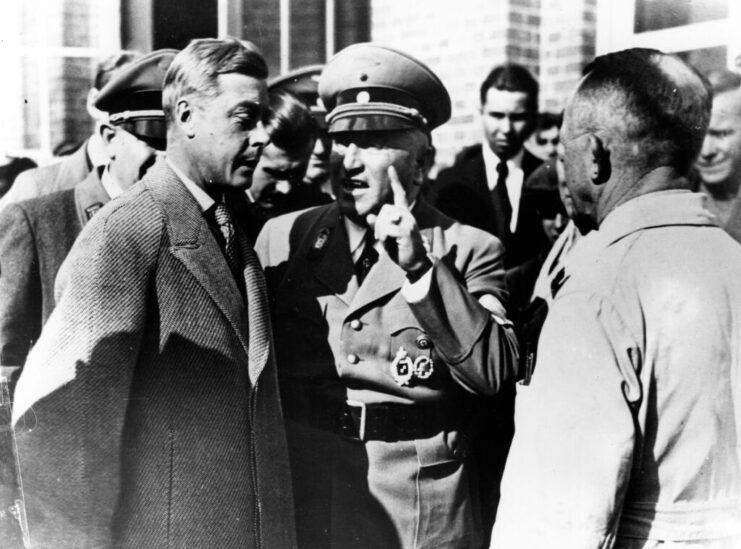
In October 1937, Edward VIII, accompanied by his wife, American Wallis Simpson, embarked on a controversial trip to Germany. At the time, the British royal was outspoken about the rise of Communism in the Soviet Union and seemed to agree with the Fascist direction Germany was moving in – at least, that’s what German Foreign Minister Joachim von Ribbentrop noted when he and the Duke of Windsor came together in June 1935.
The 1937 trip occurred shortly after Edward had abdicated from the throne to marry Simpson, a divorcée. It was met with concern from the British government, despite public assurances that it was simply so he could observe the social and economic conditions in Germany. These worries weren’t alleviated by the Duke of Windsor’s interactions with high-ranking officials, his habit of giving full salutes while in Germany or the letter he wrote following the journey.
During their visit, Edward and Simpson were treated with royal deference. The moment that received the most attention was a private meeting between them and the Führer at the Berghof, where a variety of topics were reportedly discussed. In Germany, the media framed the trip as a way of possibly bridging relations between the nation and Britain.
Since it was unable to stop the visit, the British government, concerned about optics, tried to distance itself from Edward and his actions. Public opinion of the trip was largely critical, given the growing tensions in Europe.
Edward VIII and the early stages of World War II
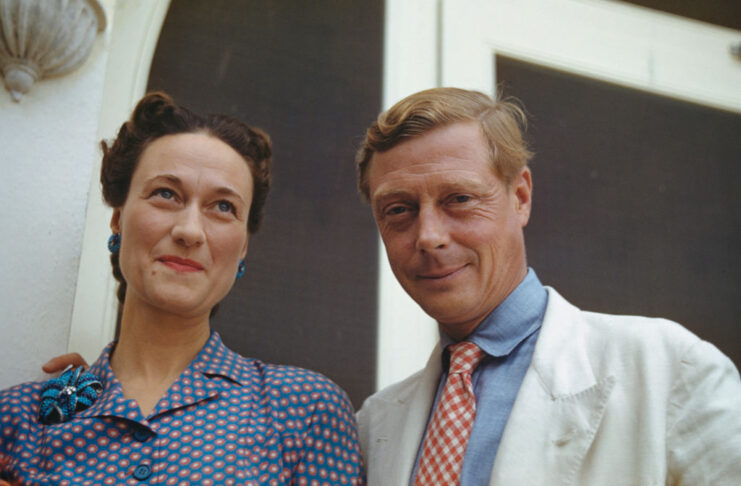
At the onset of World War II, Edward VIII found himself in a rather precarious situation. In the months leading up to the German invasion of Poland in September 1939, he had given a public speech, in which he appeared to support appeasement. This didn’t sit well with many in Britain, with the BBC going so far as to refuse to broadcast it.
Initially stationed with the British Military Mission in the France as a liaison officer, Edward’s role was largely ceremonial. When Germany invaded France in 1940, he and Wallis Simpson fled to Spain, followed by Portugal.
The British government, wary of the Duke of Windsor’s perceived pro-German sentiments, wanted to distance him from what was happening in the European Theater, leading Prime Minister Winston Churchill to appoint him governor of the Bahamas – the idea was to get him as far away from Europe as possible. Word of Edward’s appointment received varied reactions; some viewed it as a demotion, while others recognized the move to be strategic on the part of political officials.
Despite his initial reluctance, Edward accepted the position and moved with Wallis to Nassau.
Operation Willi
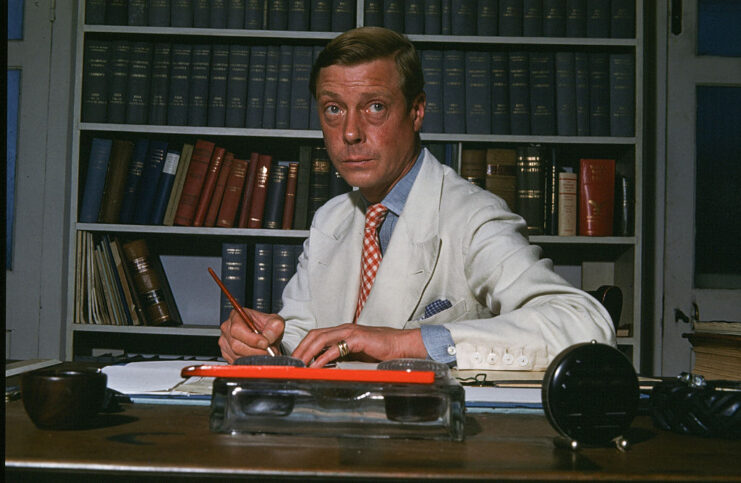
While Edward VIII was moving around Western Europe, German intelligence aimed to persuade him to join their cause. Joachim von Ribbentrop and the Führer saw an opportunity to use the Duke of Windsor as a pawn in their plans for Britain; if all went according to plan, they’d convince him to cut all ties with the British Royal Family, speak out against Winston Churchill’s wartime policies and accept a position as the puppet king, should Germany win the Battle of Britain.
A senior SS intelligence officer, Walter Schellenberg, was charged with enacting the plot. He was given access to 55 million Swiss francs, which he was to offer Edward, and, if that failed, he was told to kidnap the Duke of Windsor. Ultimately, the task, dubbed Operation Willi, was a failure.
Edward VIII’s relationship with the Führer
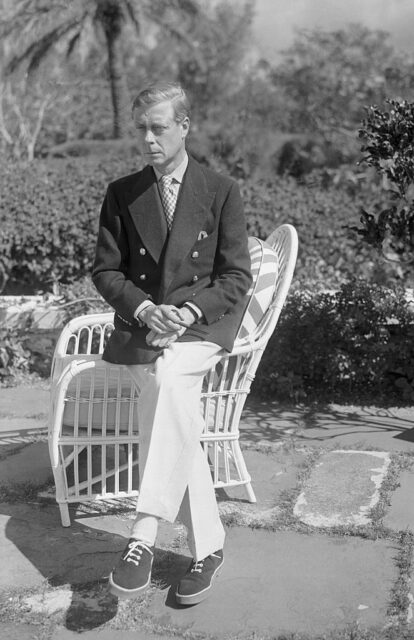
The relationship between Edward VIII and the Führer has been a topic of much speculation. The latter saw him as a potential ally, who could prove instrumental in helping move forward Germany’s goals within Britain. The Führer‘s admiration for the Duke of Windsor was evident in their 1937 meeting, during which he expressed regret about the abdication.
Albert Speer, Germany’s minister of armaments and war production during the Second World War, even quoted the country’s leader, saying, “I am certain through him permanent friendly relations could have been achieved. If he had stayed, everything would have been different. His abdication was a severe loss for us.”
While Edward publicly denied having any support for the regime, his actions and personal associations throughout the conflict fueled rumors of his perceived sympathies.
How did the Allies keep tabs on Edward VIII?
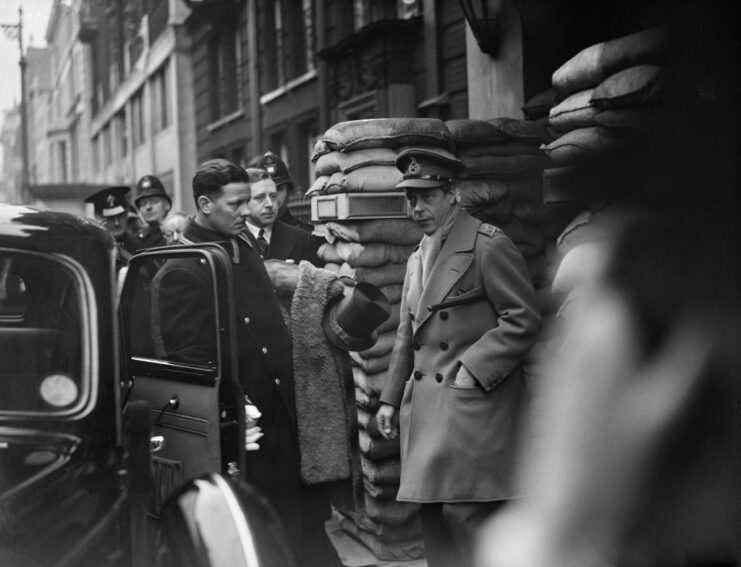
Throughout World War II, the Allied forces kept a close watch on Edward VIII. Intelligence agencies like MI5 and the FBI kept an eye on his activities and communications, in an attempt to uncover evidence of his collaboration with the Germans. However, this surveillance never found anything definitive when it came to these suspicions. That being said, subsequent reports did touch upon his naivety and poor judgement when it came to political matters.
The FBI documents explain, “Both [Wallis Simpson] and the Duke have been repeatedly warned by representatives of the British government that in the interest of morale on the British people, they should be exceedingly circumspect in their dealings with the representatives of the German government.
“The duke is in such a state of intoxication most of the time that he is virtually non compos mentis,” they continued. “The duchess has repeatedly ignored these warnings.”
Despite a lack of evidence, Edward remained under scrutiny throughout the conflict; little could be done to quell the suspicions of those charged with Allied intelligence.
Marburg Files
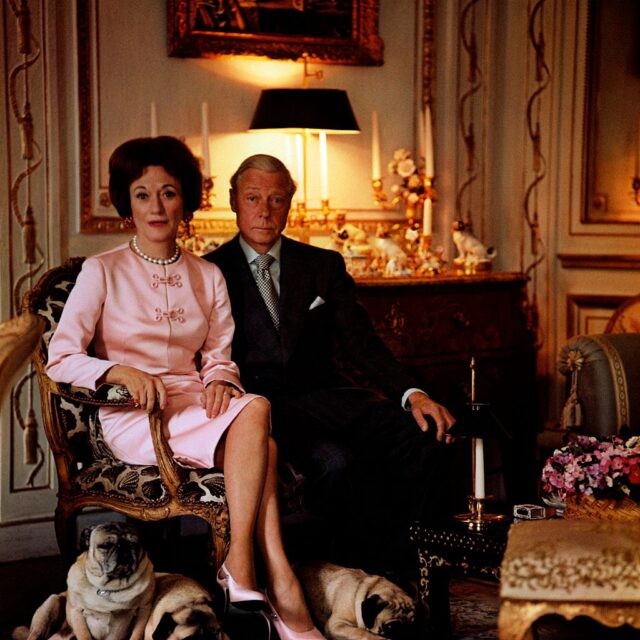
At the end of World War II, 400 tons of documents, since dubbed the “Marburg Files,” were discovered in Germany. Among them were reports revealing ties between German officials and prominent British figures – including Edward VIII.
The files confirmed suspicions regarding Edward’s complicated relationship with Germany. When they were uncovered, the Allies faced a difficult decision about whether to publicize them. On the one hand, exposing these connections could provide insight into the regime’s efforts to undermine Britain from within its own borders. That being said, they risked damaging the reputation of the British Royal Family and destabilizing an already fragile post-war Europe.
More from us: King George VI’s Service in the Great War Majorly Influenced His Actions During World War II
Want War History Online‘s content sent directly to your inbox? Sign up for our newsletter here!
The Marburg Files were kept secret for several years – that is, until the United States, against Britain’s wishes, published some of them in 1957. However, the most sensitive sections concerning the Duke of Windsor’s connections to the Führer were redacted to protect the monarchy.
